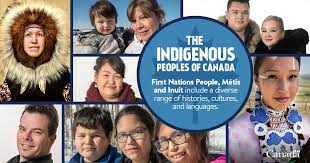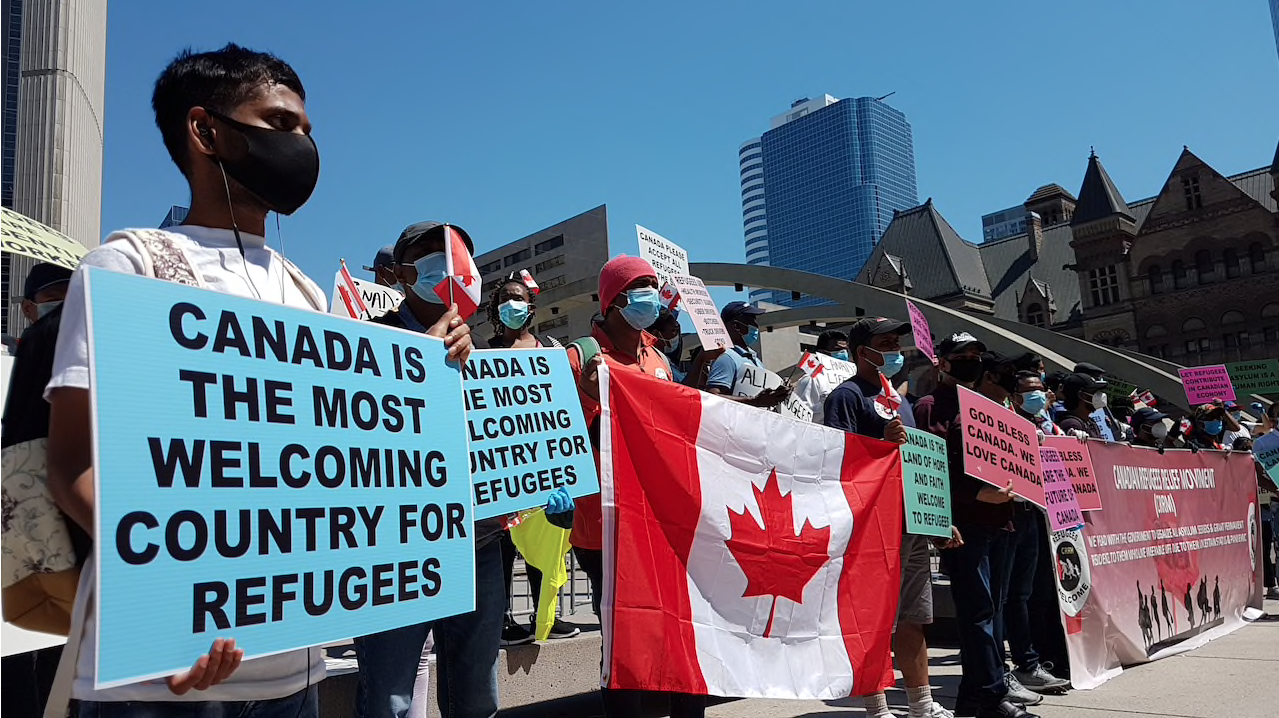OHIP Dental Coverage and Free Dental Care Ontario in 2022
Who gets OHIP Dental Coverage in Ontario? OHIP dental coverage is a type of free dental care in Ontario for all Ontario residents.
11 min read
Dr. Joanne Baldos and Dr. Adam Szymczak : Nov 28, 2022 6:00:00 PM
![[2022] Free Dental Care in Canada: The Complete Guide](https://www.smilecaredental.ca/hubfs/Canada%20Dental%20Benefit%20Infographic.png)
If you are wondering if free dental care is available in Canada, you have come to the right place.
This blog post will discuss how to access free dental care in Canada and what services are covered. We will also provide resources that can help you find free or affordable dental care in your area.
There are a few ways to access free dental care in Canada. One way is through provincial or territorial health insurance plans. Each province and territory in Canada has its own health insurance plan and programs that provide free or low-cost dental care for residents:
Also, there are 4 long-standing federal government dental plans for free dental care:
We will discuss these 4 Canada dental plans later in this blog post. But, first, let's turn our attention to the newly announced Federal Dental Care Program for Uninsured Canadians:
There is considerable confusion and misinformation on the internet about this new national dental care program. For example, there is confusion about the name of this program; it is often incorrectly referred to as:
All of the above refer to the Canada Dental Benefit, which is the official name of this federal government dental plan. In this blog post we will use all these names interchangeability.
In a political move that allows Justin Trudeau to remain the Prime Minister of Canada until 2025, his minority Liberal federal government made a deal with the leader of the New Democratic Party (NDP), Jagmeet Singh. This coalition, formed in March 2022, gives Justin Trudeau majority federal government control. In return, amongst other concessions, the NDP gets to advance its vision of universal dental care for all Canadians.
The last time the federal government seriously considered funding a Canada wide dental plan was before the Canada Health Act was introduced in 1984!
The Canadian government has recognized that seeing an oral health professional is important not only for our oral health, it is essential for overall health as well. In Canada, one third of Canadians do not have dental insurance and are unable to visit an oral health professional to prevent or treat oral diseases because it is too expensive. That is why the Government of Canada is taking concrete measures to address cost barriers to dental care for families in Canada.
Families with an annual income of less than $90,000 and lacking employer-based dental insurance are eligible for coverage.
About 6.5 million Canadians are estimated to be eligible for the plan.
Starting on Dec.1, 2022, as the first phase of the program, the interim Canada Dental Benefit is extended to children under the age of 12. To be eligible, families need to meet ALL of the following conditions for each child they apply for:
The plan is being phased in over three years before the Liberal-NDP agreement expires in 2025.
Starting on December 1, 2022, children under 12 will become eligible for the Canada Dental Benefit; it became law on Nov.17, 2022. The program will cover expenses retroactive to October 1, 2022.
Children who have access to private dental care coverage are not eligible for this federal government dental plan.Children already covered under another free dental care government program, such as Healthy Smiles Ontario, are also eligible if not all dental care costs are paid by that program.
500,000 Canadian children will benefit from this first phase of the program.
In 2023, the coverage will be extended to those under 18 years of age, seniors, and people living with disabilities.
The federal government remains committed to full implementation of the Canada dental plan for all members of households with incomes under $90,000 by 2025. Helping children under 12 to get the dental care they need, starting on Dec.1, 2022, is just the first step while a comprehensive national dental care program is developed.
Starting on Dec.1, 2022 parents or guardians of children under 12-years-old can apply through the Canada Revenue Agency (CRA) to receive direct, up-front tax-free payments to cover dental expenses.
Eligible children need to be 11 years old or under as of December 1, 2022, for the first year of
the benefit, and 11 years old or under as of July 1, 2023, for the second year of the benefit.
The benefit is up to $650 per year per child, for up to 2 years, as such take the required preliminary steps NOW to make sure that you will be ELIGIBLE to apply on Dec. 1, 2022 and get your payment for the 2022 year:
Parents and guardians must keep their dental receipts for 6 years in case the CRA contacts them in the future to validate eligibility. Applicants that are found to be ineligible for the benefit during the verification processes will be will be required to repay the benefit they received
For the second benefit period, applications will be opened on July 1, 2023.
With this benefit, which will run until 2024, families can start addressing some of the basic dental care that their young children need while the Government continues to develop a long-term Canadian dental care program.
The Canada Dental Benefit will provide payments of up to $650 per child per year for families with adjusted net income under $90,000 per year and without private dental coverage:
The Canada Dental Benefit can be used for any dental procedure provided by any licensed oral health professional ( dentist, dental specialist, dental hygienist, denturist) practicing anywhere in Canada. ALL dental procedures will be eligible for coverage, including:
The proposed Canada dental plan under the new Liberal-NDP agreement will deliver the most significant expansion of Canada's public health care system in decades.
The Parliamentary Budget Officer (PBO) estimated the cost of the NDP's dental plan during the 2019 election campaign. The PBO estimated the cost to be about 1.7 billion dollars ( $1,700,000,000) per year!
However, the first 12 months of the program is expected to cost the taxpayers 4.6 billion dollars due to an expectation that an initial surge of people with unmet dental needs would seek care when they become eligible.
On April 7, the Honourable Chrystia Freeland, Deputy Prime Minister and Minister of Finance, released Budget 2022: "A Plan to Grow Our Economy and Make Life More Affordable." The budget proposes funding for dental care of $5.3 billion over five years to Health Canada, with ongoing funding of $1.7 billion annually in year six and beyond.

The Non-Insured Health Benefits (NIHB) Program is a national health-benefit program for eligible First Nations people and Inuit. This program provides coverage for various health benefits that are not covered through other social programs, private insurance plans, or provincial or territorial health insurance.
The program covers a range of dental services, including diagnostic (e.g., X-rays), preventive (e.g., cleaning, fluorides), restorative (e.g., fillings, crowns), endodontic (including root canal treatments), and periodontal/ oral surgery.
The Non-Insured Health Benefits Program is Health Canada's national, medically necessary health benefits program that provides coverage for benefit claims for a specified range of drugs, dental care, vision care, medical supplies and equipment, short-term crisis intervention mental health counseling, and medical transportation for eligible First Nations people and Inuit.
A benefit will be considered for coverage when:
An eligible recipient is entitled to receive benefits such as vision care, prescription drugs, or other benefits or services from the NIHB Program.
An eligible recipient must be identified as a resident of Canada and one of the following:
When recipients are eligible for benefits under a private health care plan or public health or social program, claims must be submitted to these plans and programs before submitting them to the Non-Insured Health Benefits Program.
Anyone seeking information about dentists that accept NIHB should call the National Dental Predetermination Centre at 1-855-618-6291.
First, you must be an eligible client under the Non-Insured Health Benefits Program. Then, you must be examined by a dental provider who will establish a treatment plan and discuss the services you require.
The dental provider should tell you what is covered by the NIHB Program because certain services may need to be pre-approved by the NIHB Program.
Suppose your provider doesn't know whether the NIHB Program covers the service. In that case, you can obtain that information by contacting the Health Canada regional office or the National Dental Predetermination Centre (NDPC) for those regions which have been centralized and asking about the dental benefits staff and what is and is not covered.
What does "predetermination" mean?

The Interim Federal Health Program (IFPH) covers emergency dental care for refugees. “Emergency” is defined as procedures to reduce pain and active infection, bleeding, and the result of oral trauma.
The IFHP provides limited, temporary coverage of health-care benefits to people in the following groups who aren’t eligible for provincial or territorial health insurance:
Canadian veterans are entitled to various health care benefits, including dental treatment. Federal: GOVERNMENT/ DEPARTMENT: Veterans Affairs Canada.
Veterans may qualify to receive financial support for treatment benefits if they are:
Provides coverage for basic dental care and some pre-authorized comprehensive dental services. Services provided should be generally accepted practices and the most cost-effective treatment essential to good oral health.
The VAC dental program covers up to 100% of the Provincial Dental / Denturist Association fee guide rates.
Examples of services that are covered:
Examples of dental services that require pre-authorization from VAC: (Before any treatment is received, a dental treatment plan is to be submitted to VAC for preauthorization.):
Examples of services that are not covered:
Correctional Services Canada provides essential health services to inmates (access to screening, referral, and treatment services). Essential services shall include dental care for acute conditions. Federal: Correctional Services Canada.
All inmates of federal prisons.
Dental care for acute dental conditions where the inmate is experiencing swelling, pain, or trauma; preventive treatment (i.e., necessary fillings, extractions, etc.) subject to the motivation displayed by the inmate to take an active part in the process; and removable dental prostheses as recommended by the institutional Dentist. All other dental care will be initiated and funded by the inmate.

For many years, free dental has been available in Canada through four federal government dental plans for underserved Canadians: First Nations people and Inuit, refugees, Canadian veterans, and federal inmates. Respectively, the dental services have been paid for by the Non-Insured Health Benefits, Interim Federal Health Program, Veterans Affairs Canada, and Correctional Services Canada.
More recently, in March 2022, the federal government unveiled a plan for universal dental care Canada program. This new federal government dental plan for uninsured Canadians aims to provide dental care coverage for middle-income and low-income Canadians.
The Canada Dental Benefit is being phased in over 3 years, starting on Dec. 1, 2022 with children under the age of 12. The federal government remains committed to full implementation of the Canada dental plan for all members of households with incomes under $90,000 by 2025.
Approximately 75% of Canadians see a dentist regularly. About 67% of Canadians report having dental benefits that cover all or part of their treatments; roughly 50% of Canadians have employer-provided dental benefits. These statistics prove that there is a significant portion of the population that does not have access to dental care. The newly announced federal government dental plan will improve equity in oral health of Canadians.
Patients' employers pay for most dental costs in Canada through employer-sponsored dental insurance; also know as "private dental insurance". Most of these dental insurance plans do not cover braces; when they do cover braces, the coverage is only partial. It is rare for private insurance to cover braces fully.
The government does sponsor free dental programs in Canada, however none of these programs cover braces. There is no such thing as a free braces program in Canada.
Canada has universal medical care under the Canada Health Act (CHA), which means that all Canadian residents receive free medical care. For historical reasons CHA is almost exclusively restricted to care delivered by physicians, hence dental care delivered by dentists does not fall under the CHA coverage.
Nonetheless, there are many government dental plans which sponsor free dental care for Canadians most at risk of poor oral health. In Canada majority of dental care is paid through employer-sponsored dental insurance; also know as "private dental insurance".
No, the benefit will not reduce other federal benefits.
Provincial and territorial programs do not cover dental care needs for children under 12 equally across Canada, and that in some cases, the programs focus only on emergency needs. Children under 12 who are currently covered by provincial or territorial programs will still be eligible for the interim Canada Dental Benefit so long as they are incurring out of pocket costs for dental care services – costs which are not reimbursed under another federal, provincial or territorial government program – and if their family meets all of the criteria to qualify for the benefit. However, families whose needs are met by their provincial or territorial programs and don’t have out-of-pocket costs are not eligible for the benefit and should not apply.
Yes. Children under 12 covered by Non-Insured Health Benefits (NIHB) continue to be covered by the robust dental coverage available to them under that program. Parents covered by NIHB are eligible to apply for their children under 12 if they meet all of the other criteria for the benefit and are incurring out of pocket costs for dental care services that are not reimbursed by a federal, provincial or territorial government program. However, we anticipate that in most cases, NIHB will meet their needs and they will not have out-of-pocket expenses for their dental care.
Applicants must have out-of-pocket expenses that are not fully reimbursed by any other federal, provincial or territorial government program in order to be eligible for the Canada Dental Benefit.
In the best interest of your health and well-being,

Who gets OHIP Dental Coverage in Ontario? OHIP dental coverage is a type of free dental care in Ontario for all Ontario residents.
![[2022] Free Dental Care in Alberta: The Complete Guide](https://www.smilecaredental.ca/hubfs/Alberta%20Health%20Services.png)
If you are looking for free dental care in Alberta, you have come to the right place.
![[2022] Healthy Smiles Ontario: Everything You Need to Know](https://www.smilecaredental.ca/hubfs/undefined-May-28-2022-10-49-48-84-PM.jpeg)
If you are looking for free dental care in Ontario for your child, the Healthy Smiles Ontario Program may be what you need. Eligible children and...